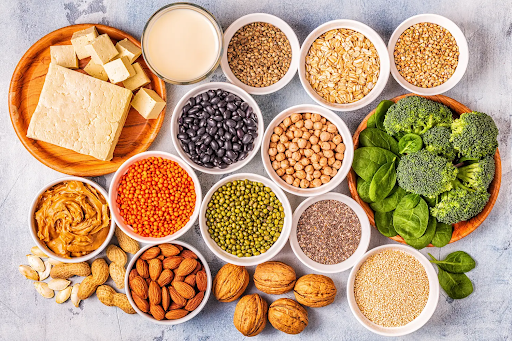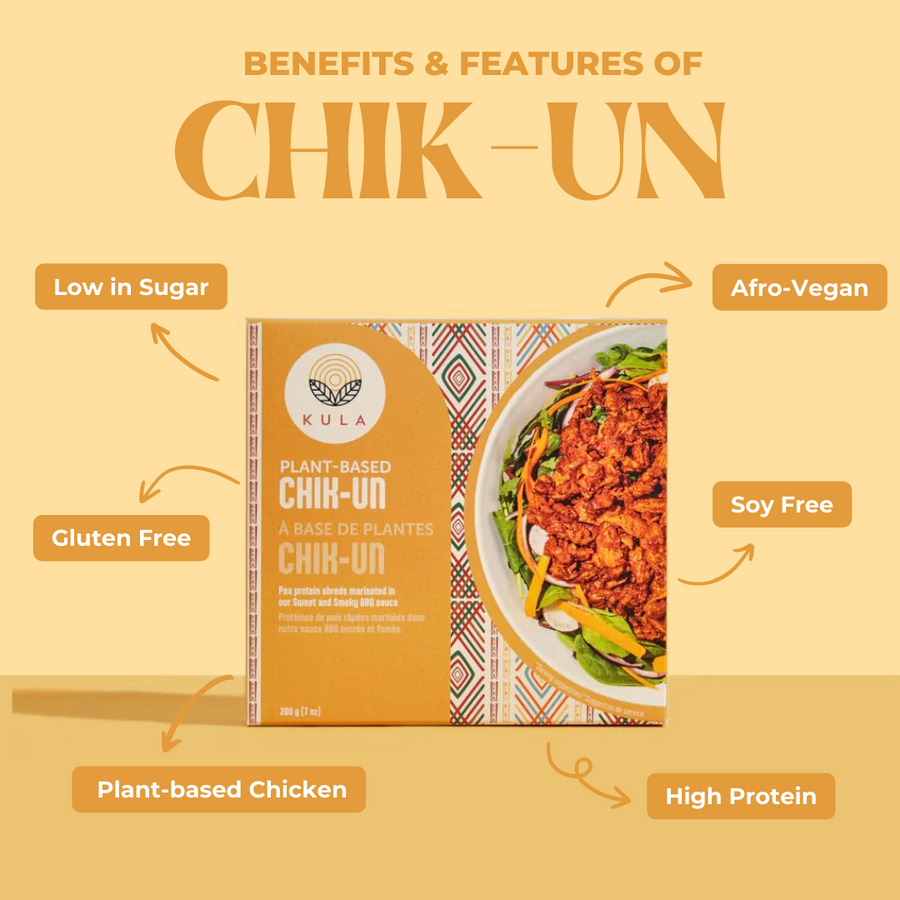Dietitian-Approved Sugar Free Sauces for Clean Eating Success
Dietitian-Approved Sugar Free Sauces for Clean Eating Success
Blog Article
All Regarding Healthy Food: Benefits of Checking Out Plant Based Options
The conversation surrounding plant-based diets has actually gotten significant interest in the last few years. Lots of individuals are discovering the prospective wellness advantages, nutritional advantages, and ecological effects linked with these dietary selections. As individuals become extra conscious of their food's influence on wellness and sustainability, inquiries develop regarding the usefulness of adopting such a way of life. What specific adjustments can one expect, and how might these options reshape not just individual health however likewise the world's future?
Recognizing Plant-Based Diet Plans
Lots of people link plant-based diets mainly with vegetarianism or veganism, these diets can include a wide array of eating patterns that focus on whole, minimally processed plant foods. Such diet regimens typically include fruits, veggies, whole grains, nuts, vegetables, and seeds, while limiting or removing animal products. This adaptability permits individuals to tailor their nutritional selections according to nutritional demands and personal choices. Some might embrace a mainly plant-based diet regimen while still occasionally consuming meat or dairy products, frequently described as a flexitarian method. The emphasis stays on including even more plant foods, which can bring about a varied range of flavors and meals. Recognizing these different analyses of plant-based consuming is crucial for valuing its access and charm in contemporary food society.
Health Benefits of Plant-Based Foods
The health benefits of plant-based foods are substantial, offering a nutrient density advantage that supports total health. Research study shows that these foods can enhance heart health and wellness and play a crucial duty in efficient weight monitoring. By incorporating a lot more plant-based choices, individuals may improve their nutritional selections and advertise lasting wellness.
Nutrient Thickness Benefit
Nutrient density plays a necessary function in the health and wellness benefits of plant-based foods, making them a compelling choice for those looking for a well balanced diet plan. Plant-based foods, such as fruits, vegetables, legumes, nuts, and whole grains, are frequently rich in essential vitamins, minerals, and anti-oxidants while being reduced in calories. This high nutrient density allows people to eat less calories while still meeting their nutritional demands. Furthermore, these foods are packed with dietary fiber, advertising digestive health and wellness and assisting in weight management. By including nutrient-dense plant-based choices, consumers can enhance their total health and wellness, support their body immune systems, and minimize the risk of persistent illness. Eventually, the nutrient density of plant-based foods emphasizes their value in a health-conscious lifestyle.
Heart Wellness Enhancement

Weight Administration Support
In addition to advertising heart health, a plant-based diet can substantially help in weight monitoring. This dietary technique highlights entire foods such as fruits, vegetables, beans, nuts, and whole grains, which are usually lower in calories and greater in fiber compared to animal-based products. The high fiber content helps raise satiation, minimizing overall calorie consumption. Moreover, plant-based diet plans are usually rich in vital nutrients while reduced in undesirable fats, making it simpler to keep a healthy weight. BBQ Sauces. Research study shows that people who embrace a plant-based way of living often tend to have lower body mass indexes (BMIs) and experience more successful fat burning compared to those who take in meat-heavy diet plans. Subsequently, embracing plant-based options is a critical option for reliable weight management
Nutritional Worth of Plant-Based Ingredients
Plant-based ingredients are rich in vital nutrients, using a varied variety of vitamins, minerals, and anti-oxidants that add to total health. A comparison of protein sources reveals that while animal items are often considered as superior, many plant-based options provide adequate healthy protein and various other helpful compounds. Understanding the nutritional worth of these active ingredients can aid people make notified dietary choices.
Essential Nutrients in Plants
Nutrient-rich ingredients located in plants supply a varied range of important vitamins and minerals that contribute substantially to total health and wellness. These ingredients are abundant in vitamins A, C, and K, which sustain immune function, vision, and blood clot, specifically. Additionally, plants provide vital minerals such as magnesium, calcium, and potassium, important for heart health, muscular tissue feature, and bone strength. The visibility of fiber in plant-based foods aids food digestion and promotes a healthy and balanced digestive tract microbiome. Antioxidants, located generously in vegetables and fruits, help battle oxidative stress and lower inflammation. Moreover, several plant foods are low in calories yet high in nutrients, making them a superb option for those looking for to maintain a healthy weight while ensuring excellent nutrient consumption.
Contrasting Healthy Protein Sources
Protein sources differ significantly in their nutritional profiles, with plant-based ingredients supplying one-of-a-kind benefits. Unlike animal healthy proteins, which usually have hydrogenated fats and cholesterol, plant proteins tend to be reduced in these undesirable elements. Legumes, nuts, seeds, and entire grains are abundant in vital amino acids, fiber, vitamins, and minerals. Lentils supply high protein web content together with significant iron and folate, while quinoa is a total protein, using all nine crucial amino acids. Furthermore, plant-based healthy proteins are commonly accompanied by anti-oxidants and phytochemicals that support general health. The change to plant-based protein sources not just improves dietary intake however also aligns with lasting dietary methods, reducing ecological influence and promoting long-lasting health advantages.
Environmental Effect of Plant-Based Consuming
As understanding of environment change expands, many individuals are discovering lasting dietary options that can greatly minimize their ecological impact. Plant-based eating has become a significant contributor to minimizing greenhouse gas my latest blog post discharges, which are primarily connected with animals manufacturing. The farming of fruits, vegetables, beans, and grains generally needs less sources, such as water and land, contrasted to pet farming. In addition, plant-based diet regimens can lead to decreased deforestation, as less land is needed for grazing livestock or growing animal feed. By moving in the direction of plant-based choices, customers can sustain biodiversity and advertise much healthier ecological communities. In general, accepting plant-based eating not only benefits personal health but also represents a vital step toward ecological sustainability and preservation initiatives.
Conquering Common Misconceptions
While lots of people acknowledge the benefits of a plant-based diet, several misunderstandings typically prevent them from completely accepting this way of living. An usual idea is that plant-based diet plans lack sufficient healthy protein; nonetheless, many plant sources, such as vegetables, nuts, and tofu, provide ample healthy protein. Furthermore, some presume that this diet is expensive, when as a matter of fact, staples like beans, rice, and seasonal veggies can be rather special info budget-friendly. One more false impression is that plant-based eating is overly limiting, whereas it really offers a varied variety of foods and flavors. Lastly, many stress that a plant-based diet plan may bring about shortages, yet with proper preparation, individuals can get all needed nutrients, including minerals and vitamins, while taking pleasure in a variety of tasty dishes.
Tips for Transitioning to a Plant-Based Lifestyle
Making the change to a plant-based lifestyle can be an enhancing experience, though it often needs some advice to navigate the first modifications. Initially, people are urged to begin gradually, incorporating more fruits, vegetables, vegetables, and whole grains right into their dishes while lowering meat and dairy usage. Dish preparation is crucial; preparing a regular food selection can aid alleviate the modification and avoid final unhealthy options. Exploring brand-new dishes and cooking techniques can additionally keep and boost the experience enjoyment about plant-based consuming. Furthermore, signing up with support system or areas can provide inspiration and share valuable pointers. Finally, remaining educated regarding nutrition assurances balanced meals, stopping shortages while fostering a healthy, rewarding plant-based lifestyle.
Delicious Plant-Based Dish Concepts
Discovering tasty plant-based meal concepts can influence individuals to embrace a more nourishing diet plan. One prominent choice is a passionate quinoa salad, featuring cherry tomatoes, cucumber, and a spicy lemon-tahini dressing. An additional fave is a tasty lentil stew, packed with carrots, celery, and great smelling natural herbs, perfect for a soothing dinner. For morning meal, overnight oats made with almond milk, chia seeds, and topped with fresh berries offer a healthy begin to the day. Additionally, a dynamic veggie stir-fry with tofu site link and a variety of vibrant veggies can be a quick yet satisfying dish. Creamy avocado salute on whole-grain bread, sprinkled with flavors and seeds, offers a basic yet savory treat. These meals showcase the range and richness of plant-based eating.

Frequently Asked Inquiries
Can a Plant-Based Diet Regimen Provide Sufficient Protein?
The concern of whether a plant-based diet can provide adequate healthy protein is typical. Countless sources, consisting of legumes, nuts, seeds, and whole grains, can fulfill healthy protein needs effectively, supporting a nutritious and well balanced diet for people.
Are Plant-Based Diets Suitable for Children?
The viability of plant-based diet regimens for children depends on mindful preparation. Adequate nutrients need to be guaranteed, including healthy proteins, vitamins, and minerals. With proper support, such diets can support healthy and balanced growth and growth in kids.
Exactly how Do I Eat in restaurants on a Plant-Based Diet?
Eating in restaurants on a plant-based diet entails seeking dining establishments with varied menus, requesting modifications, and checking out vegan-friendly options. Planning in advance and connecting nutritional choices can enhance the dining experience while maintaining nutritional selections.
What Are Usual Allergens in Plant-Based Foods?
Common irritants in plant-based foods include soy, gluten, nuts, and seeds - Plant Based Beef. People adhering to a plant-based diet regimen should understand these irritants and check out labels carefully to avoid damaging reactions and guarantee risk-free intake
Can Plant-Based Diets Aid With Weight-loss?
Research suggests that taking on a plant-based diet plan may assist in weight reduction because of its typically lower calorie density and greater fiber material. This mix can boost satiety, aiding individuals manage their caloric consumption properly. Several people connect plant-based diet regimens mostly with vegetarianism or veganism, these diet regimens can encompass a wide range of eating patterns that prioritize whole, minimally processed plant foods. Nutrient density plays an important duty in the wellness benefits of plant-based foods, making them an engaging option for those looking for a balanced diet regimen. Plant-based diets have been revealed to significantly boost heart health, as they typically include elements that support cardiovascular feature. In addition to promoting heart wellness, a plant-based diet regimen can considerably aid in weight monitoring. A typical belief is that plant-based diet regimens lack sufficient healthy protein; however, various plant sources, such as vegetables, nuts, and tofu, give ample protein.
Report this page